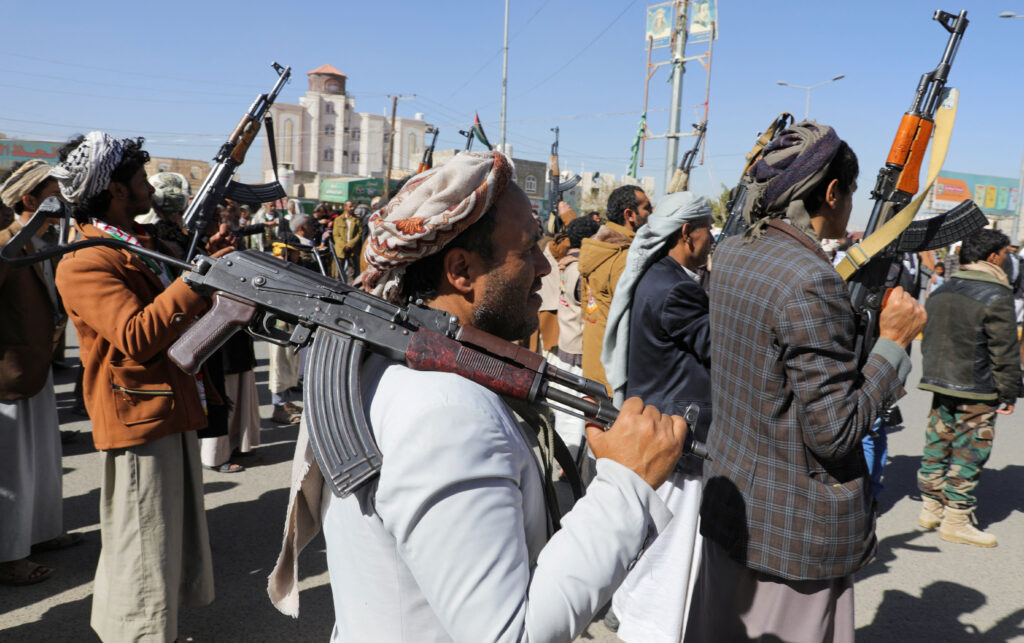US President Joe Biden should be applauded for Thursday’s strikes against the Houthis. International trade is constrained by eight primary maritime chokepoints, hard realities imposed by immutable geography. The United States has long recognized a vital national security interest in ensuring freedom of navigation through each of them. This strike helped protect those interests.
Half of these eight global chokepoints are dispersed widely. Only one each can be found in Europe (the Strait of Gibraltar), in Africa (the Cape of Good Hope), in East Asia (the Straits of Malacca), and in the Americas (the Panama Canal). Unfortunately, the other half of these critical chokepoints are all concentrated in a relatively small region where southwestern Asia meets Europe and Africa: the Bosporus Strait, the Suez Canal, the Bab-el-Mandeb Strait, and the Strait of Hormuz. This area also happens to be the most important single source of the energy required to sustain global economic growth. Those two facts explain why US presidents keep rediscovering the need to focus disproportionately on the Middle East, despite their often-heartfelt desires to do otherwise.
One hopes that the right lessons will be learned in both Sanaa and Tehran.
Today, the greatest threat to these chokepoints is Iran and its proxies. The regime in Tehran has long threatened to shut down Hormuz and repeatedly attacked shipping in the area. Most recently, it even threatened to shut down Gibraltar. The Houthis, Iran’s partner and proxy in Yemen, had repeatedly attacked ships transiting the Bab. The Biden administration recognized the threat, laid the diplomatic predicate, assembled the multilateral coalition, deployed the assets, issued clear warnings, and then took action. This is what professional policymaking looks like. One hopes that the right lessons will be learned in both Sanaa and Tehran.
But the United States also needs to learn its own lessons. Across multiple administrations and congressional terms, Washington has long underestimated the inherent threat posed by the Houthis, and thus allowed the conditions to develop that allowed the Houthis to prosper. Thursday’s action should mark the end of those practices.
For most of the Obama administration, policy toward Yemen was viewed solely through a counterterrorism lens, and thus the United States provided no material support to Yemen’s counterinsurgency campaign against the Houthis—until that insurgency took the capital in 2014. The Saudi air campaign against the Houthis began in 2015 and was a predictable disaster across many dimensions, but especially since it reinforced preconceptions held by many in Washington about the perpetual nature of sectarian or tribal conflict in the region—which conveniently had the benefit of minimizing any sense of US culpability for the situation.
It’s going to be increasingly difficult to explain why the Houthis pose the kind of threat to civilians that merit US military strikes but somehow not a terrorist designation.
The Trump administration erred in its refusal to support a Saudi and Emirati campaign to retake the key Houthi-held port city of Hodeidah in 2018, a decision that looks even worse in retrospect given how much stronger the Houthis have grown since. Saudi Arabia’s murder of journalist Jamal Khashoggi later that year focused US domestic politics on Saudi actions in Yemen, and Congress passed a bipartisan bill in 2019 that, absent a presidential veto, would have eliminated US pressure on the Houthis. One of the first foreign policy decisions of the Biden administration was to launch an admirable diplomatic initiative to address the Houthi threat and resolve the civil war, but then it reacted slowly to a 2022 Houthi terrorist attack on the United Arab Emirates, damaging its relationship with Abu Dhabi. And despite diplomacy faltering due to Houthi intransigence, the administration has been disappointingly slow in its internal deliberations about redesignating the Houthis as a terrorist organization. It’s going to be increasingly difficult to explain why the Houthis pose the kind of threat to civilians that merit US military strikes but somehow not a terrorist designation.
The United States can no longer afford to underestimate the threat posed by the Houthis, much less the threat posed by the wider network that supports Iranian malign behavior. Understanding the true nature of any threat should begin by listening when our adversaries tell us, repeatedly and proudly, who they are and what they stand for. In the case of the Houthis, they have publicly chanted the same slogan for at least two decades: “Death to America. Death to Israel. Curse on the Jews.” The Houthis act in line with these values. With Thursday’s action, the United States has begun act in line with its own.
William Wechsler is the senior director of Middle East Programs at the Atlantic Council. His most recent US government position was deputy assistant secretary of defense for special operations and combatting terrorism.

